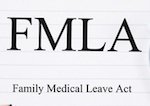There are three main exceptions to Nevada being an “employment-at-will” state. Nevada employers who have 15 or more employees generally may not fire someone for either of the following reasons:
- The termination breaches a contract between the employer and employee;
- The termination is a form of discrimination against the employee on the basis of race, nationality, sex, religion, age, disability, gender identity/expression, or sexual orientation; or
- The termination is in retaliation to the employee’s legally protected behaviors (such as whistleblowing)
Victims of wrongful termination in Nevada may be able to sue their former employer to get their jobs back as well as for:
- Lost pay plus interest
- Pain and suffering
- Punitive damages
- Attorney’s fees and court costs
In this article, our Las Vegas Nevada labor law attorneys discuss:

1. Definition of at-will employment in Nevada
Nevada is an “at-will” employment state.1 This means that employers are free to fire employees for almost any reason, whether reasonable or not.
Therefore, it is just as legal for an employer to fire workers because of their annoying voice as it is to fire them for being perpetually tardy. And employees have no legal grounds to sue former employers for firing them for frivolous, unfair reasons.
But as discussed in the following section, there are three situations where employers are not free to fire their employees.
2. Exceptions to at-will employment in Nevada
In general, Nevada employers with 15 or more employees are prohibited from firing employees for either of the following three reasons:2
- The firing breached an employment contract;
- The firing was discrimination-based; or
- The firing was a retaliation against the employee’s legally protected action (such as declining to work in hazardous conditions)
Note that employees of companies with less than 15 employees are still encouraged to consult with a labor law attorney if they believe they were wrongfully terminated. There still may be legal options to hold the employer to account.
2.1. Breach of contract
Certain jobs involve an “employment contract” or collective bargaining agreement between the employer and employee(s). These contracts typically spell out the terms of the employment, including acceptable grounds for termination.3 Employers who fire an employee for reasons other than those enumerated in the contract face a wrongful termination suit.

Example: Jim hires Patty as a political consultant for his campaign. They sign a one-year contract that clearly states that Patty may not be fired as long as his poll numbers are 50% or higher. But after six months, Jim fires Patty even though Jim’s poll numbers are in the 60s. Patty may be able to sue Jim for breaching the employment contract by firing her even though his poll numbers were at least 50%.
Note that employment contracts may be oral or written, and some may take the form of an employee handbook.
2.2. Discrimination
Nevada law prohibits employers from firing employees because of the employees’:
- race or color
- nationality
- religion
- age
- disability
- sex (including being pregnant)
- gender identity or expression
- sexual orientation4

Prejudiced employers may try to concoct a non-discrimination-based reason for firing someone to cloak the real, discrimination-based reason. Consequently, employees who believe they were fired due to prejudice should compile all the evidence possible that demonstrates the employer’s bias. Examples include text messages, emails, and eye-witness accounts. Without evidence, an employment law attorney may have a difficult time bringing a wrongful termination suit.
2.3. Retaliation
In most situations, employers are free to fire workers who act contrary to the business’s best interests. However, employers may not fire employees in retaliation for any adverse actions employees take that is “protected.”5 Ten of these “protected” actions are:
- Filing a workers’ compensation claim
- Refusing to break the law
- Reporting to jury duty
- Cooperating with an investigation about employment discrimination, hours, or wages
- Using legal products off duty that are illegal at work
- Taking concerted action to improve wages and working conditions (such as through a union)
- Whistleblowing
- Filing an employment discrimination claim
- Taking advantage of the FMLA
- Refusing to work in unsafe conditions
2.3.1. Filing a workers’ compensation claim
Every employer is required to carry worker’s compensation insurance to help cover an employee’s expenses if he/she gets insured. In general, employers may not fire an employee in retaliation for filing a workers’ compensation claim unless the filing was done in bad faith.6
2.3.2. Refusing to break the law
In general, employees may not be fired for refusing their employers’ order to conduct illegal activity:7

Example: Jim is a CPA with a large accountant firm. The boss is unhappy with the latest projections, so he asks Jim to fudge the numbers so their clients will be happy. If Jim refuses to cook the books, the boss would probably be barred from firing him because cooking the books is against the law.
Note that it would be irrelevant in the above example if the clients did not lose money. Jim may decline to follow the boss’s orders to break the law even if there is little chance of someone getting hurt.
2.3.3. Jury duty
Jury duty is a civic duty that all eligible citizens are required to participate in when called upon. Nevada employers generally may not terminate employees who miss work for jury duty. Furthermore, going to jury duty should not take away from the employee’s vacation time or sick leave.8
2.3.4. Cooperating with an investigation
In general, employees are immune from termination just for participating in a law enforcement investigation regarding such matters as:
- employee wages,
- hours of work, and/or
- employment discrimination
Even if the employee ultimately testifies against the employer as a witness, the employer may not fire the employee.
2.3.5. Using legal products while off duty
In general, employees are immune from termination just for using legal products while off duty even if the employer prohibits those products at work. Common examples of legal products that may be banned from a workplace include:

- firearms
- cigarettes
- alcohol
Certainly, employers are free to terminate workers if these products negatively impact their work performance. An employee who stops drinking before work hours but arrives to work intoxicated may lawfully be fired.
2.3.6. Taking concerted action to improve work conditions
In general, employers may not fire workers for taking concerted action in an effort to improve their wages and working conditions.9 Examples of such activities include:
- unionizing
- attending protests
- attending meetings
- posting on social media
Employees just need to take care their actions never become dangerous or violence; otherwise, the employer arguably may fire them without legal repercussions.
2.3.7. Whistleblowing
In general, Nevada employers are prohibited from terminating employees who report unlawful activities to an outside agency.10 Examples of whistleblowing are:
- A hygienist reporting dental malpractice by his boss to the State Dental Board
- A pharmacist reporting contaminated medicines at his pharmacy to the FDA
- An accountant reporting fraud at his company to the SEC
2.3.8. Filing an employment discrimination claim
In the same way that employers may not discriminate against employees for being part of a protected class, employers may not fire employees for filing an employment discrimination claim.11 Employees who file a claim may do so with either the:
- Nevada Equal Rights Commission (NERC), or
- Equal Employment Opportunity Commission (EEOC)
2.3.9. Taking time off through FMLA
Most employers with 50 or more workers are required to abide by the Family Medical Leave Act (FMLA). Consequently, employees may not be fired who use FMLA to take off work for:

- maternity leave,
- illness or injury,
- caring-taking for an infirm family member, and/or
- addressing emergencies arising out of a relative’s military service
Typically, the FMLA guarantees workers 12 weeks of unpaid time off without fear of losing their job.12
2.3.10. Unsafe conditions
Employers are not allowed to fire employees for refusing to work in unreasonably unsafe conditions.13
Example: Tom is a receptionist. One day he smells a gas leak. He tells his boss, who instructs Tom to keep working and ignore it. If Tom refuses to work, it would probably be illegal for his boss to fire him because being in the vicinity of a gas leak is unsafe.
Note that if the office in the above example had only smelled bad — such as from fumes from a nearby restaurant — then the boss possibly could lawfully discharge Tom if he refused to work there.
3. Damages for wrongful termination
Plaintiffs who were fired for an “at-will exception” may be able to sue the employer for wrongful termination and recover:

- Lost pay and benefits
- Pain and suffering
- Punitive damages
The judge may also order that the defendant pay attorney’s fees and that the person be given his or her job back after being wrongfully terminated.14
1. Lost pay and benefits
Plaintiffs in a wrongful termination case can sue for all the money plus interest they would have received had they not been fired, such as:
- wages/salary,
- gratuities,
- overtime wages,
- bonuses,
- insurance,
- pensions or 401K plans,
- profit-sharing, and/or
- stock options
- loss of future earnings
2. Pain and suffering
Pain and suffering damages are meant to compensate for a plaintiff’s emotional distress. Since this is so subjective, labor law attorneys often turn to mental health expert witnesses to help calculate the extent of the plaintiff’s emotional distress.
3. Punitive damages
Judges order punitive damages in order to punish the defendant for intentionally harming the defendant and to deter others from acting the same way. Labor law attorneys always try to persuade courts to grant punitive damages because they can be much higher than compensatory damages (such as back pay and pain and suffering).
Call a Nevada labor law attorney…
Were you fired for an illegal reason in Nevada? Phone our Las Vegas employment law attorneys for a free consultation. We will do everything possible in pursuit of all the damages available in your case, including loss of lost wages, pain and suffering, punitive damages, and possibly reinstating you in your job!
See our related article, Is Nevada a Right to Work state?
Do you work in California? See our article about California exceptions for at-will employment.
Legal References
- See Hansen v. Harrah’s, 100 Nev. 60, 675 P.2d 394 (1984).
- NRS 613.310
- See K Mart Corp. v. Ponsock, 103 Nev. 39, 732 P.2d 1364 (1987).
- NRS 613.330.
- NRS 613.340.
- See Dillard Dep’t Stores, Inc. v. Beckwith, 115 Nev. 372, 989 P.2d 882 (1999).
- See Allum v. Valley Bank, 114 Nev. 1313, 970 P.2d 1062 (1998).
- NRS 6.190.
- See MGM Grand Hotel-Reno v. Insley, 102 Nev. 513, 728 P.2d 821 (1986).
- NRS 618.445.
- NRS 613.330.
- See Family and Medical Leave Act, Nevada Department of Administration; OVERVIEW For State of Nevada Executive Branch Agencies
.
- See D’Angelo v. Gardner, 107 Nev. 704, 819 P.2d 206 (1991).
- See Dillard Dep’t Stores, Inc. v. Beckwith, 115 Nev. 372, 989 P.2d 882 (1999).

